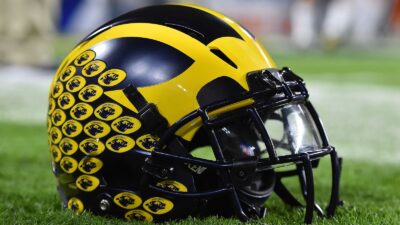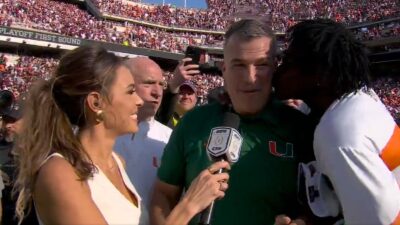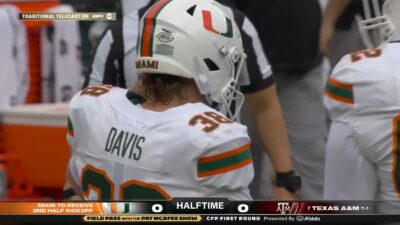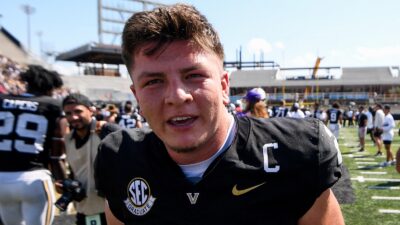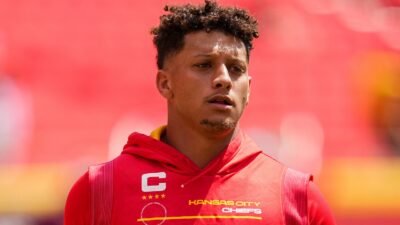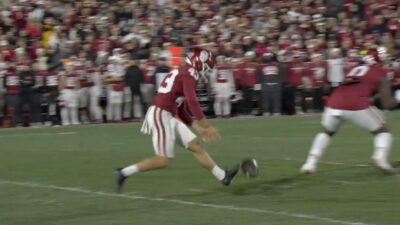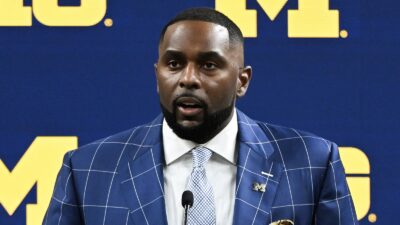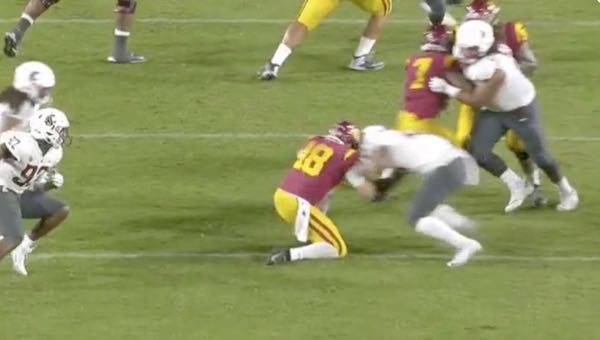
There have been some puzzling calls and no-calls for targeting across college football this season, but information from a new report indicates none were more controversial than a hit on USC quarterback JT Daniels last month.
Late in the third quarter of USC’s game against Washington on Sept. 21, Wazzu linebacker Logan Tago initiated helmet-to-helmet contact on Daniels as the QB was going to the ground. A flag was thrown for roughing the passer, and the play was reviewed for targeting.
Targeting call overturned mid-game by Pac-12 Senior VP of business affairs, who called the command center and overruled trained officials: https://t.co/yPOAnWHVDt pic.twitter.com/Xn4E1eG2iO
— Timothy Burke (@bubbaprog) October 11, 2018
According to a report from Pete Thamel of Yahoo Sports, both the in-stadium replay officials and the replay officials in the Pac-12’s command center agreed that Tago should have been called for targeting and ejected. However, the replay report from the game stated that “unfortunately a third party did not agree” with the call.
The third party was Pac-12 general counsel and senior vice president of business affairs Woodie Dixon, who is not a formally trained official. Despite trained officials disagreeing with Dixon, targeting was not called. A section on the replay report labeled “Grader Comments” stated that the review was “Correctly Handled.”
Pac-12 commissioner Larry Scott told Yahoo Sports that Dixon was incorrectly described as a “third party,” as Dixon is part of the replay review team and has a full understanding of what constitutes targeting.
That was not the only controversial play from the USC-Washington State game, either. In the fourth quarter, Washington State quarterback Gardner Minshew was the recipient of a brutal helmet-to-helmet shot from USC linebacker Porter Gustin. Again, officials ruled that there was no targeting.
Porter Gustin missed the 1st half tonight due to targeting in the last game… and now he's doing this?? pic.twitter.com/RMym4s5rZA
— CFB Gif'er (@CFBgifer) September 22, 2018
Gustin is considered one of USC’s best defensive players, and he would have been ejected right before Washington State had 1st-and-goal at the 10. He had already missed the first half of the game after being called for targeting the week before against Texas, and another targeting call would have disqualified him from the remainder of the Washington State game and the first half of the following game against Arizona.
Obviously, the perception that an untrained third party is influencing rules that are supposed to be in place for player safety is a huge concern. Controversy over targeting calls is something we have already seen several times this season, but this goes beyond an official interpreting a play the wrong way.




